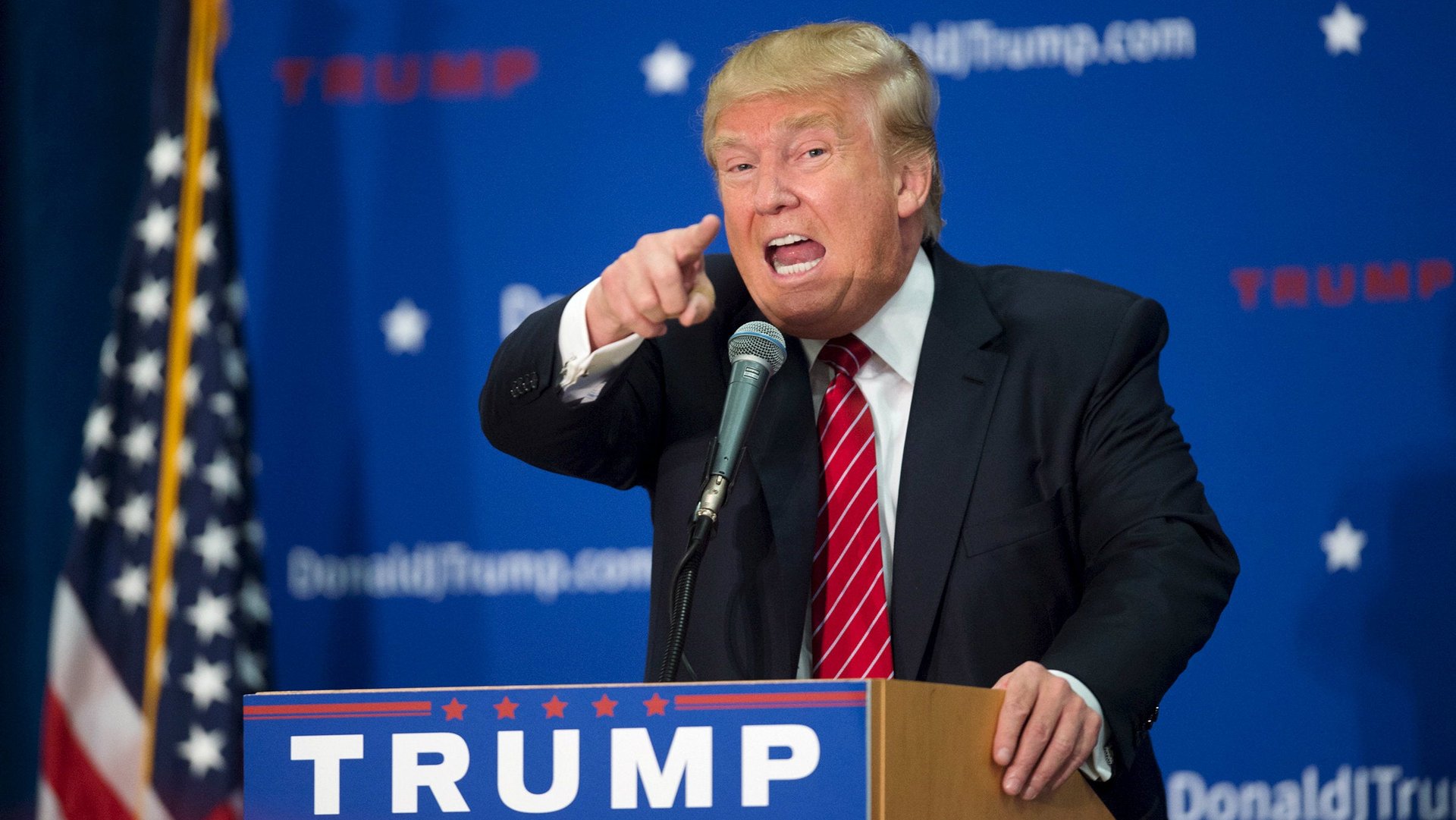Forget Donald Trump—a philosopher argues that other US politicians are the real propagandists
The word “propaganda” is typically associated with totalitarian regimes attempting to control public opinion. But Jason Stanley, a philosopher at Yale University, argues that democracies like the United States are particularly prone to propaganda, and that American politics is mired in misinformation.


The word “propaganda” is typically associated with totalitarian regimes attempting to control public opinion. But Jason Stanley, a philosopher at Yale University, argues that democracies like the United States are particularly prone to propaganda, and that American politics is mired in misinformation.
Democracy is susceptible to propaganda, he says, because liberty protects free speech and so propagandistic statements can’t be banned. But, as Stanley writes in his book How Propaganda Works, humans have “characteristic rational weaknesses and are susceptible to flattery and manipulation,” and so are vulnerable to spin. This is not a recent discovery: As Stanley notes, Aristotle recognized that demagogic propaganda posed the biggest threat to democracy.
Stanley argues that there are two kinds of propaganda. The most obvious kind, typically present in times of emergency such as war, uses fear mongering and nationalism to garner support through appeals to emotion.
But there’s also a more subtle form of propaganda, which Stanley defines as when an affront to a certain ideal is presented as though it’s an embodiment of that very ideal. For example:
“How do you defend bigotry against gays? You can’t just stand up and say, ‘We hate gays’, so you evoke religious liberty. Package anything in liberty and you’ve got yourself a deal,” he tells Quartz. As this uses the ideal of liberty to curtail another’s liberty, it meets Stanley’s description of this kind of propaganda.
Code words are another common way of disguising undemocratic values. “We style ourselves as fans of equality. If somebody’s an explicit racist we discount them as a politician. And yet the situation for black Americans is dire,” says Stanley.
Repeated associations mean that “welfare” and “inner city” are now well-recognized code words effectively connected in US political discourse with African Americans. And Stanley says that ”public goods and services” has come for some voters to mean: “give free sh*t to black people.” (He’s not endorsing such connotations.)
Meanwhile, economic debate has started to take on the language of emergency, which incites panic and was typically only used in wartime. Stanley says that the phrase “fiscal cliff” is an example of propaganda. Former Federal Reserve chairman Ben Bernanke popularized the term in 2012 to describe impending tax increases and spending cuts that would come into effect unless politicians reached an alternative deal. It created a sense of confused alarm: 47% thought that going over the cliff would lead to higher deficits, and only 14% understood that it would reduce deficits. Stanley writes that this misunderstanding “allowed politicians to continue to employ the fear of a rising deficit for political purposes, leading to a fiscal crisis surrounding the debt ceiling in October 2013.”
While it’s common for politicians to use code words and declarations of democratic values to disguise undemocratic views, Stanley says that Republican presidential candidate Donald Trump does not engage in this form of propaganda. Instead, he’s engaging in a far more blunt subversion of egalitarian ideals, according to Stanley.
“I did not anticipate Trump. He’s an old-school demagogue, he’s not playing games with code words. In his presidential announcement, he said, ‘Mexicans are rapists’,” Stanley says. “So what’s going on? Trump shows that people are no longer that invested in liberal democracy and so, instead of using hypocritical doublespeak, it’s attractive to appeal to them directly.”
In other words: “You’re starting to see a breakdown of liberal democracy.”